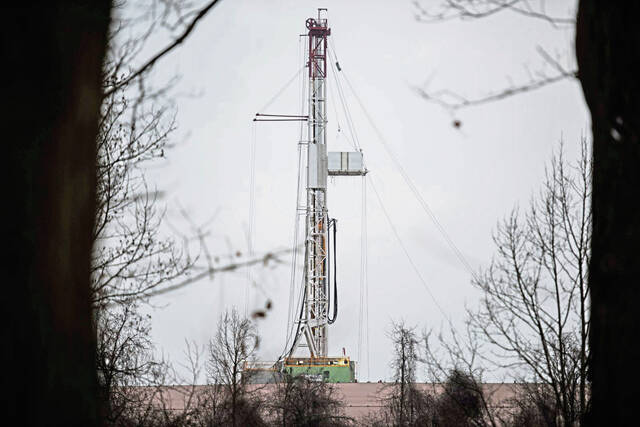Pennsylvania’s Commonwealth Court this week denied the Murrysville Watch Committee’s appeal of its failed challenge to Murrysville’s fracking ordinance.
Initially filed as a challenge to the Murrysville Zoning Hearing Board, which upheld the ordinance on unconventional gas well drilling, appeals at the county (2020) and now state level (2021) have been unsuccessful.
“Notably, as previously mentioned, the (Murrysville Watch Committee, or MWC) does not challenge any of the (Murrysville Zoning and Hearing) Board’s specific findings of fact and, as a result, they are binding on this court,” Commonwealth Court Judge Patricia McCullough wrote in the court’s opinion, adding that the only evidence submitted by the MWC was “entirely speculative.”
“(Dennis) Skeers, the president of MWC, simply voiced his position that unconventional gas drilling should be in an industrial zoning district and not a residential district,” McCullough wrote.
The MWC is a group of residents who have voiced their objection to the unconventional drilling overlay that Murrysville officials superimposed on the existing zoning map. MWC members contend fracking is an industrial activity and, as such, should be restricted to industrial-zoned areas.
Work on the first unconventional well pad approved in Murrysville, Olympus Energy’s Titan well pad off Bollinger Road, is underway.
In the court’s opinion, McCullough referenced the Frederick fracking case, in which several Allegheny Township residents sued their local government after its approval of a Marcellus shale gas well pad within 1,200 feet of their homes.
In that case, the court’s opinion was that concerns expressed by homeowners consisted of “speculation of possible harms,” which was “insufficient to show that the proposed natural gas well will be detrimental to the health, safety and welfare of the neighborhood.”
McCullough added that while MWC members could have introduced expert testimony about the adverse effects of fracking, or layperson testimony based on firsthand experiences with gas wells, they did not.
“Consequently, the MWC essentially advances challenges to (Murrysville’s fracking ordinance) on its face, rather than as applied,” McCullough wrote.
She added that Commonwealth rulings have determined there is nothing “inherently illegal about unconventional oil and gas drilling, and this court has rejected any presumption that the activity will have an adverse effect on the environment or the population or that it is incompatible with residential zoning districts.”
The court’s opinion on the adverse effects of drilling appears to be at odds with a new large-scale study from Harvard University’s T.H. Chan School of Public Health.
The study, published this week in the “Nature Energy” scientific journal, suggests airborne contaminants emitted by unconventional drilling and transported downwind are contributing to increased mortality.
Researchers studied a cohort of more than 15 million Medicare beneficiaries — people 65 and older — living in all major U.S. unconventional drilling exploration regions from 2001 to 2015. They also gathered data from the records of more than 2.5 million oil and gas wells.
For each Medicare beneficiary’s ZIP code and year in the cohort, the researchers used two statistical approaches to calculate what the exposure to pollutants would be from living close to fracking operations, downwind of them or both, while adjusting for socioeconomic, environmental and demographic factors.
Those who lived closest to wells had a statistically significant elevated (2.5% higher) mortality risk compared with those who didn’t live close to wells. The study also found that people who lived near fracking wells as well as downwind of them were at higher risk of premature death than those living upwind, when both groups were compared with people who were unexposed.
“Our findings suggest the importance of considering the potential health dangers of situating (fracking) near or upwind of people’s homes,” said Longxiang Li, postdoctoral fellow in the Department of Environmental Health and lead author of the study.
Members of the Marcellus Shale Coalition, a trade group representing the unconventional drilling industry, were critical of the study, saying it makes poor assumptions, does not account for the lower life expectancy among rural senior citizens, and fails to establish any causal connection between fracking and illness in nearby residents in a blog post on its website.
MWC attorney John Smith said his clients are “undeterred” and have yet to decide whether they will make an appeal to the state’s Supreme Court.
The Titan well pad’s approval by Murrysville Council imposes a list of conditions on Olympus, including a three-year time limit to complete the wells, a requirement to notify nearby residents before drilling starts and hold informational meetings, a requirement to train first responders to deal with potential emergencies and a requirement to notify the council within 24 hours of receiving a noise complaint from a resident.
The MWC shares much of its concern about fracking with a similar group based in Penn Township, Protect PT. Its executive director, Gillian Graber, said that despite having a member who lived adjacent to the Titan well pad site, they opted not to challenge its approval.
“While Murrysville’s conditions are better than most, they still, in my opinion, are not enough to prevent harm to the community from air and water pollution, truck traffic impacts and noise,” Graber said. “The only way to prevent harm to human health is to not allow it in close proximity to humans.”








